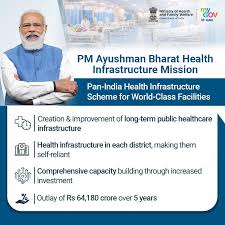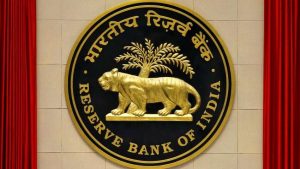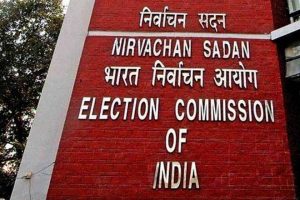Today’s Current Affairs: 30th December 2024 for UPSC IAS exams, State PSC exams, SSC CGL, State SSC, RRB, Railways, Banking Exam & IBPS, etc
Table of Contents
PM- Ayushman Bharat Health Infrastructure Mission (PM-ABHIM) Scheme:

The Delhi High Court has recently ordered signing of an MoU between Union Ministry of Health and Family Welfare and the Delhi Government for implementing PM- Ayushman Bharat Health Infrastructure Mission (PM-ABHIM) scheme in the national capital.
- It is a Centrally Sponsored Scheme (CSS) with some Central Sector (CS) Components which has an outlay of Rs. 64,180 Crores for the scheme period (2021-22 to 2025-26).
- It is the largest pan-India scheme for strengthening healthcare infrastructure across the country.
- The measures under the scheme focus on developing capacities of health systems and institutions across the continuum of care at all levels viz. primary, secondary and tertiary level and on preparing health systems in responding effectively to the current and future pandemics/disasters.
- The objective of the scheme is to fill critical gaps in health infrastructure, surveillance and health research – spanning both the urban and rural areas.
- The following are the components under CS Component of the scheme:
- 12 Central Institutions as training and mentoring sites with 150 bedded Critical Care Hospital Blocks (CCBs);
Strengthening of the National Centre for Disease Control (NCDC), 5 New Regional NCDCs and 20 metropolitan health surveillance units; - Expansion of the Integrated Health Information Portal to all States/UTs to connect all public health labs;
- Operationalization of 17 new Public Health Units and strengthening of 33 existing Public Health Units at Points of Entry, that is at 32 Airports, 11 Seaports and 7 land crossings;
- Setting up of 15 Health Emergency Operation Centres and 2 container based mobile hospitals; and
- Setting up of a national institution for One Health, 4 New National Institutes for Virology, a Regional Research Platform for WHO South East Asia Region and 9 Biosafety Level III laboratories.
- 12 Central Institutions as training and mentoring sites with 150 bedded Critical Care Hospital Blocks (CCBs);
‘FREE-AI’ Committee:

The Reserve Bank of India recently said it has set up a committee, which will be called as FREE-AI, to develop the framework for responsible and ethical enablement of artificial intelligence
- It is an eight-member panel constituted by the Reserve Bank of India (RBI) to develop a framework for responsible and ethical Artificial Intelligence (AI) in the financial sector.
- It will be headed byPushpak Bhattacharyya, Professor, Department of Computer Science and Engineering, IIT Bombay.
- The panel includes representatives from NITI Aayog, HDFC Bank, IIT Madras, the Ministry of Electronics and Information Technology, law firm Trilegal, and Microsoft India.
- The committee, which will be supported by the RBI’s fintech department, will be required to submit its report within six months from the date of its first meeting.
- The committee’s mandate is to study the present level of AI adoption in financial services and review regulatory and supervisory approaches on AI with a focus on the financial sector globally.
- The committee will also recommend a framework including governance aspects for responsible, ethical adoption of AI models for the financial sector.
- The committee will also have to identify potential risks associated with AI and recommend an evaluation, mitigation, and monitoring framework for regulated entities.
JIGYASA Program:

The Scientific Aptitude Assessment Exercise under CSIR’s JIGYASA programwas conducted online.
- JIGYASA program was launched in 2017 by Council of Scientific & Industrial Research (CSIR). It is also known as CSIR Jigyasa program.
- It aims to promote curiosity and scientific temperament as part of Scientific Social Responsibility (SSR).
- CSIR Jigyasa Virtual Lab (CJVL) is an extension of CSIR Jigyasa program.
- The objective of Jigyasa is to extend the classroom learning by focusing on well-planned research laboratory-based learning for school students.
- To bring in quality with value added research knowledge, CSIR laboratories collaborate with Kendriya Vidyalayas (KVS), Navodaya Vidyalayas (NVS), Karnataka State S&T Academy (KSTA), Atal Innovation Mission (AIM), Niti Aayog, Indian Institute of Technology Bombay, etc.
- Under this programme the target audience for the Virtual Lab platform is students of the standard VI to XII (11-18 years) who would like to explore science using different activities, experienced researchers and faculties on the subjects of Science, Mathematics, Biology and IT.
NASA’s Parker Solar Probe : In News

NASA’s Parker Solar Probe recently set a historic record by flying closer to the Sun than any other man-made object, reaching speeds of 430,000 mph and withstanding temperatures up to 982°C.
- It was Launched in 2018, a car-sized robotic spacecraft, is named after American solar astrophysicist Eugene Newman Parker.
- This is the first NASA mission named for a living researcher and it’s humanity’s first mission to explore within 3.8 million miles of the Sun’s corona.
- The Probe uses an advanced carbon-composite heat shield to withstand extreme temperatures.
- The Parker Solar Probe aims to approach within 6.5 million kilometers of the Sun to study energy flow, solar corona heating.
- It also investigates the source of solar winds, high-speed streams of charged particles that affect space weather.
- To investigate the Sun’s corona, and understand why it is hotter than the Sun’s surface, a long-standing mystery in astrophysics.
- To determine the structure and dynamics of the plasma and magnetic fields at the sources of the solar wind.
- To explore mechanisms that accelerate and transport energetic particles.
GPS Spoofing:

GPS interference on passenger aircraft, including ‘spoofing’ with false signals, are on the rise over conflict zones globally, including on India’s borders with Pakistan, a report from the OPSGROUP said recently.
- GPS spoofing, also known as GPS simulation, refers to the practice of manipulating or tricking a GPS receiver by broadcasting false GPS signals.
- Essentially, it misleads the GPS receiver into believing it is located somewhere it is not, resulting in the device providing inaccurate location data.
- This form of cyberattack undermines the reliability of GPS data, which is vital for a variety of applications, from navigation to time synchronization and more.
- It exploits the inherent vulnerabilities in the GPS infrastructure – the weak signal strength of GPS satellites.
- The Global Positioning System (GPS) functions by sending signals from satellites to GPS receivers on Earth.
- These receivers then calculate their position based on the time it takes for these signals to arrive.
- However, due to the weak signal strength of the GPS satellites, these signals can be easily overwhelmed by fake signals, resulting in inaccurate location data on the receiving device.
- Typically, a GPS spoofer begins by acquiring a basic understanding of the victim’s GPS setup, including the types of signals it uses and how they are processed.
- With that information, the attacker then sends counterfeit GPS signals that mimic the real ones.
- These fake signals are stronger, causing the receiver to recognize them as authentic signals.
- As a result, the victim’s GPS receiver ends up processing these counterfeit signals, leading to erroneous location information.
Lok Sabha Election 2024 : India’s Report

Key Highlights of the Data:
- There were 97,97,51,847 registered electors, marking a 7.43% increase from 91,19,50,734 in 2019.
- A total of 64.64 crore votes were cast, compared to 61.4 crore in 2019.
- Dhubri (Assam) recorded the highest turnout at 92.3%, while Srinagar (J&K) had the lowest at 38.7%, (up from 14.4% in 2019).
- NOTA received 63,71,839 votes (0.99%) in 2024, and transgender voter turnout stood at 27.09%.
- In the 2024 Lok Sabha elections, there were 10,52,664 polling stations, an increase from 10,37,848 in 2019.
- Bihar saw the highest increase in polling stations, adding 4,739, followed by West Bengal (1,731).
- Repoll held only in 40 Polling Stations (0.0038% of Total Polling Stations) compared to 540 in 2019.
- In the 2024 Lok Sabha elections, 12,459 nominations were filed, up from 11,692 in 2019.
- Malkajgiri (Telangana) had the highest with 114 nominations, while Dibrugarh (Assam) had the lowest with 3 nominations (excluding Surat).
- Women Empowerment: In the 2024 Lok Sabha elections, there were 47,63,11,240 female electors (48.62% of total electors), up from 43,85,37,911 (48.09%) in 2019.
- Highest percentage share of Female electors in 2024: Puducherry (53.03%) followed by Kerala (51.56%).
- Dhubri (Assam) recorded the highest female voter turnout at 92.17%, followed by Tamluk (West Bengal) with 87.57%.
- The number of female electors per 1,000 male electors increased to 946 in 2024, up from 926 in 2019.
- State with the highest number of Female Contesting candidates: Maharashtra (111) followed by UP (80) and Tamil Nadu (77).
- In the 2024 Lok Sabha elections, third-gender electors rose by 23.5% to 48,272 (39,075 in 2019), with Tamil Nadu having the highest at 8,467.
- Voter turnout among transgender voters nearly doubled to 27.09% from 14.64% in 2019.
- The number of registered persons with disabilities (PwD) electors rose to 90,28,696, compared to 61,67,482 in 2019.
1,19,374 overseas electors were registered in 2024 (99,844 overseas electors in 2019). - In the 2024 Lok Sabha elections, six national parties participated, securing a combined vote share of 63.35% of the total valid votes.
- The Surat (Gujarat) constituency was uncontested.
- Of the 3,921 independent candidates, only 7 were elected.
- Independent candidates received 2.79% of the total valid votes, with 279 independent female candidates.
Kamarajar Port : In News

The Minister for Ports, Shipping and Waterways recently said cargo-handling capacity at Indian ports increased by 87 percent in the last nine years, with Tamil Nadu’s Kamarajar Port registering a whopping swell of 154 percent.
- Kamarajar Port, formerly known as Ennore Port,is located approximately 24 km north of Chennai in Tamil Nadu, India.
- It is the 12th major port of India and the first port in India which is a public company.
- It was declared as a major port under the Indian Ports Act, 1908, in March 1999.
- It is the only corporatized major port and is registered as a company.
- The port is owned by Chennai Port Trust, which also operates the Port of Chennai.
- The port works in a landlord port model.
- The landlord port is characterized by its mixed public-private orientation.
- Under this model, the port authority acts as a regulatory body and as a landlord, while port operations (especially cargo handling) are carried out by private companies.
- The port has terminals for handling coal, LNG, containers, and multipurpose cargo. Coal is the main cargo shipped through Kamarajar Port.
International Day of Epidemic Preparedness:
International Day of Epidemic Preparedness, UN Secretary-General António Guterres urged all nations to invest in resilience and equity to make a healthier and safer world for all.It is annually observed on December 27 to advocate the importance of prevention of, preparedness for, and partnership against epidemics.It highlights the urgent need to invest in systems that can prevent, detect, and respond to infectious disease outbreaks.The first-ever International Day of Epidemic Preparedness, held on 27 December 2020, was called for by the United Nations General Assembly to advocate the importance of the prevention of, preparedness for, and partnership against epidemics.
Denmark Strait Cataract:
The Denmark Strait cataract, an underwater giant, defies conventional understanding of waterfalls, influencing global ocean circulation and shaping ecosystems, despite its invisible and silent presence.It is the largest waterfall on Earth, situated in an underwater channel between Iceland and Greenland.With a vertical fall measuring 2,000 metres, it’s over three times the height of the Angel Falls, the world’s tallest land-based waterfall, which stands at just over 979 metres.
Exercise Surya Kiran:
The Indian Army contingent, comprising 334 personnel, departed for Nepal recently to participate in the eighteenth edition of the Joint Military Exercise Surya Kiran.It is a joint military exercise between the Indian army and Nepal army.It is an annual event, conducted alternately in both countries.It aims to enhance interoperability in forest warfare, counter-terrorism operations in mountains, and Humanitarian Assistance and Disaster Relief under the United Nations Charter.
Biodiversity Credits:
A recent study published in the Proceedings of the Royal Society B highlights significant uncertainties regarding the effectiveness of biodiversity credits.A biodiversity credit is a verifiable, quantifiable, and tradeable financial certificate rewarding positive biodiversity outcomes, such as the conservation or restoration of species, ecosystems, and natural habitats. They are gaining attention as a mechanism to finance biodiversity conservation and achieve the targets under the Kunming-Montreal Global Biodiversity Framework (KMGBF).
South Asian Economic Union:
The South Asian Economic Union (SAEU) remains an aspirational vision amidst the geopolitical and economic complexities of the region.The SAEU is a long-term vision of the South Asian Association for Regional Cooperation (SAARC) to integrate the economies of its eight member states: Afghanistan, Bangladesh, Bhutan, India, Maldives, Nepal, Pakistan, and Sri Lanka.
Objective is to enhance regional trade, investment, connectivity, and economic cooperation through phased integration of markets.
Dr. Pushpak Bhattacharyya Committee:
The Reserve Bank of India (RBI) has constituted an eight-member committee to develop a framework for the ethical and responsible adoption of Artificial Intelligence (AI) in the financial sector.Established by Reserve Bank of India (RBI). Total Members: 8. Chaired by Dr. Pushpak Bhattacharyya, a Professor at IIT Bombay. Aim is to create a Framework for Responsible and Ethical Enablement of AI (FREE-AI) in the financial sector to guide AI adoption ethically and securely.
Operation Greens Scheme:
The government’s flagship Operation Greens scheme, designed to stabilise crop prices and benefit farmers, has spent just 34 per cent of its allocated budget for 2024-25, according to a parliamentary report.A Central Sector Scheme under the Pradhan Mantri Kisan SAMPADA Yojana to stabilize crop prices and ensure farmers’ welfare. Ministry: Ministry of Food Processing Industries (MoFPI). Launched: November 2018, with an initial outlay of ₹500 crore.
Decline in Contributions to PM CARES Fund After COVID Pandemic:
The PM CARES Fund, created in March 2020 in response to the COVID-19 crisis, saw a significant drop in contributions in the financial year 2022-23, with total donations reaching Rs 912 crore, a steep fall from the Rs 7,184 crore received in 2020-21. Voluntary contributions accounted for Rs 909.64 crore, while foreign donations were just Rs 2.57 crore. The fund’s contribution peaked during the pandemic, with both domestic and international support rapidly declining post-2021 as the crisis subsided.
Haryana Hikes DCRG Limit by 25%:
The Haryana government, under Chief Minister Nayab Singh Saini, has made several significant decisions to enhance employee benefits, improve governance, and address public concerns. The decisions were announced after a state cabinet meeting, including increases in gratuity limits, updates to development charges policies, and reforms in public service exams.
Koneru Humpy From Retirement Doubts to Rapid Glory:
Koneru Humpy, the pioneering force in Indian women’s chess, scripted another chapter of glory by winning her second Women’s World Rapid Chess Championship title in New York at the age of 37. Her remarkable journey from contemplating retirement to reclaiming the world crown underscores her resilience and passion for the game. Humpy’s story is not just about victories on the chessboard but also about balancing motherhood, family support, and a challenging professional chess career.




